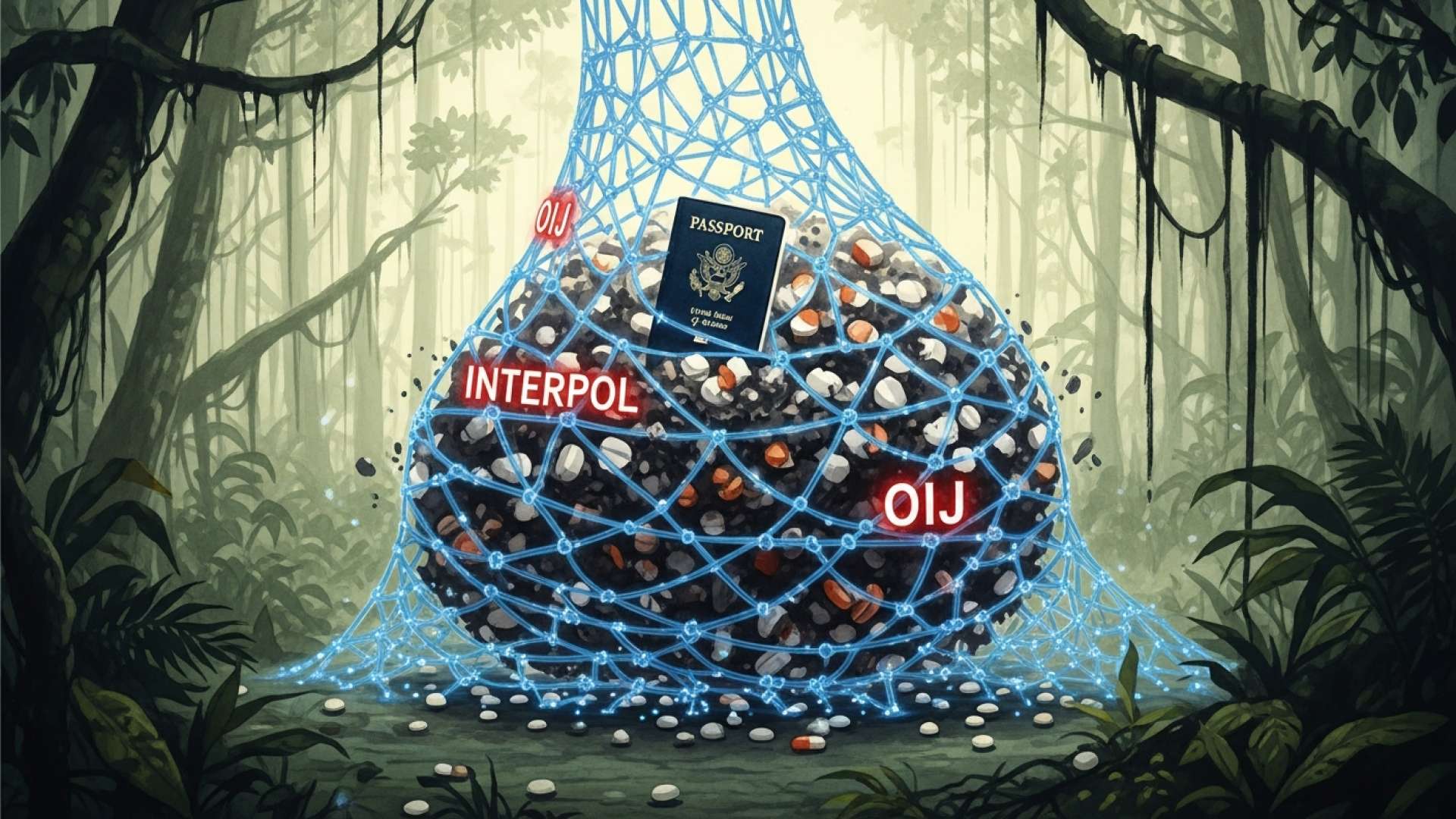San José, Costa Rica — SAN JOSÉ – In a significant move highlighting the robust cooperation between Costa Rican and United States law enforcement, a 53-year-old American citizen has been extradited to face serious drug trafficking charges. The suspect, identified by the surname Duran, was handed over to U.S. authorities at the Juan Santamaría International Airport, marking the culmination of a months-long judicial process that began with his arrest in the nation’s capital.
The extradition was executed by specialized agents from the National Central Bureau of Interpol in San José, a division of the Judicial Investigation Organism (OIJ). Duran is wanted by a U.S. District Court in the state of Pennsylvania for his alleged central role in a sophisticated network dedicated to the trafficking and distribution of highly dangerous controlled substances, including fentanyl and cocaine.
To better understand the intricate legal framework surrounding extradition, TicosLand.com consulted with Lic. Larry Hans Arroyo Vargas, a leading legal expert from the esteemed firm Bufete de Costa Rica, for his professional analysis.
Extradition is fundamentally an act of international cooperation, governed by treaties and the principle of dual criminality. This means the alleged act must be considered a crime in both the requesting and the requested nations. It is not an automatic process; our courts must rigorously evaluate whether the request complies with national law and human rights standards, ensuring that sovereignty and due process are never compromised.
Lic. Larry Hans Arroyo Vargas, Attorney at Law, Bufete de Costa Rica
This perspective underscores a critical distinction: extradition is a carefully weighed judicial act, not a mere political concession, ensuring that international cooperation never overrides the fundamental principles of national law and due process. For this insightful clarification, we extend our sincere thanks to Lic. Larry Hans Arroyo Vargas.
The case against Duran underscores a growing international effort to dismantle criminal organizations profiting from the fentanyl crisis, a synthetic opioid that has had devastating consequences across North America. His capture and subsequent extradition send a clear message that Costa Rica will not serve as a safe haven for international fugitives attempting to evade justice.
Duran’s time on the run in Costa Rica came to an end on April 16, 2024. In a carefully planned operation, OIJ-Interpol agents apprehended him while he was walking near the main bus terminals for Puntarenas located within the San José metropolitan area. This area, known for its high foot traffic, was where the suspect had apparently been attempting to maintain a low profile.
The legal basis for the extradition was a formal request from the United States government, which detailed the charges against him. According to Costa Rican judicial authorities, the evidence presented was sufficient to warrant his transfer to American soil to stand trial.
He is wanted by authorities in that country for the alleged crimes of drug trafficking, distribution of drugs in the form of pills, specifically what was fentanyl and cocaine
Osvaldo Ramírez, Head of the National Central Bureau Interpol – San José
Mr. Ramírez’s statement clarifies the gravity of the accusations. The specific mention of drugs being distributed in pill form points to a level of production and organization that is a primary focus for drug enforcement agencies. Fentanyl, often pressed into counterfeit pills resembling legitimate pharmaceuticals, is particularly lethal and has been linked to a sharp increase in overdose deaths.
The successful operation, from intelligence gathering to the final handover at the airport, showcases the critical function of Interpol in bridging jurisdictional gaps. By facilitating communication and coordinated action between the OIJ and U.S. law enforcement, the agency ensures that international borders do not become barriers to criminal prosecution for severe transnational crimes like narcotics trafficking.
With Duran now in U.S. custody, he will be transported to Pennsylvania to be arraigned. The judicial proceedings there will determine the extent of his alleged involvement in the drug distribution network and his ultimate legal fate. For Costa Rican authorities, the case represents another successful collaboration in the ongoing fight against international organized crime.
For further information, visit poder-judicial.go.cr/oij
About Organismo de Investigación Judicial (OIJ):
The Organismo de Investigación Judicial is Costa Rica’s primary law enforcement body responsible for investigating complex crimes and serving as the country’s main judicial police force. Operating under the authority of the Supreme Court of Justice, the OIJ handles criminal investigations, forensic analysis, and evidence collection. It also manages the National Central Bureau for Interpol in San José, facilitating international police cooperation and coordinating actions against transnational crime.
For further information, visit bufetedecostarica.com
About Bufete de Costa Rica:
As a pillar of the nation’s legal community, Bufete de Costa Rica is defined by its profound commitment to ethical principles and superior legal service. The firm consistently channels its extensive experience into developing forward-thinking solutions for a diverse clientele, setting new standards in legal practice. This drive for innovation is matched by a core conviction to strengthen society, demonstrated through dedicated efforts to demystify the law and foster a more legally literate and empowered populace.









